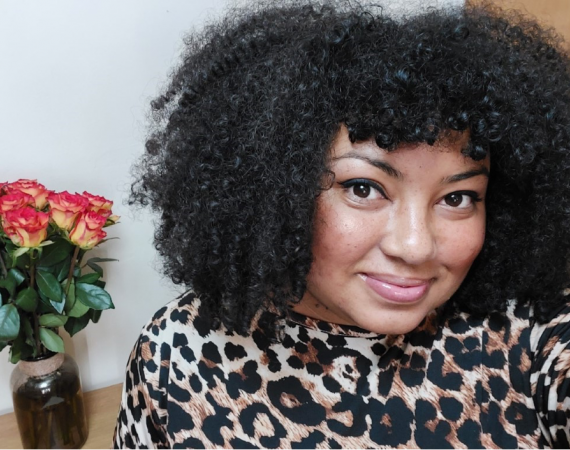Article
Posted on Tue 12 Jan 2021
Vaccines in Popular Culture
‘It is my hope that people can understand why vaccines are so needed in society.'

Portrait of Furaha Asani
As Watershed’s new research lead, I’ve been keen to put all my knowledge and experience to good use in every way I can within Watershed, and in the Bristol arts and cultural sector.
It’s also important to me that part of my work will involve community engagement and I cannot wait for the pandemic to subside and for lockdown to lift so I can mingle and get to know the city.
The Pervasive Media Studio’s Friday lunchtime talks are a great way for Watershed to host openly accessible bitesize showcases of some of the work of the studio residents, our team and partners and collaborators who are doing things that excite us.
Whilst I have several areas of interest, one of the most urgent is hosting conversations about vaccines, vaccination programmes and vaccine hesitancy. I was born and raised in Nigeria in the mid-80s, and had the privilege of receiving all the vaccinations present on the infant vaccination scheme at that time. Through my life I have also received vaccinations as and when they have been needed.
My PhD, which I did at the University of Sheffield Medical School, was based in infection and immunity. I researched in vitro human immune responses to a particular type of bacteria called Streptococcus pneumoniae – which can cause various illnesses from middle ear infection to pneumonia.
My research portfolio, together with my commitment towards social justice, has made me passionate about holding space for people who have doubts about vaccines especially because of two causes: medical racism, and science miscommunication. I believe that it is very important for scientists to engage in such conversations and, as much as possible, provide and signpost towards accurate information about vaccines.
Through the years, vaccines have become firmly rooted in pop culture. Currently they are once more taking centre stage, with news and anxiety about the Covid-19 vaccine roll-out, and feature in conversations both in everyday life and on social media.
We know that vaccines have done a world of good, and yet they are often still surrounded by myths, misunderstanding, and misinformation. It can also feel overwhelming to sift through all the information shared and differentiate between what is accurate or not.
It is important to form opinions based only on accurate information: it is equally important to understand the root causes of mistrust in vaccines in order to engage with people in building confidence in vaccines.
When the opportunity was given to me to speak on this topic that I’m so passionate about, I jumped at it! What better way to already start engaging with people in the city I soon plan to call home than to present something current, and in a fun way?
My plan is to use a presentation and host a talk that will give a snapshot of the human immune system, briefly look at vaccines and their history, discuss some myths surrounding vaccines, highlight some significant incidents that contributed to mistrust in vaccines, and signpost to helpful resources.
There will also be time for questions after the talk. It is my hope that this lunchtime talk will be a space where people can find some clarity about vaccines, and reflect on why they are so needed in society.
Finally, I also hope that people who attend will leave having learned where to access helpful and accurate information, which they can share with others.
Furaha Asani is the Watershed’s research lead. Her Talk is live at 1pm on Friday 15th of February and a captioned and recorded version of the talk will be available after it has been broadcast.
Subscribe to Watershed’s Youtube channel here.
This article was originally written for Bristol 24/7 and published here.